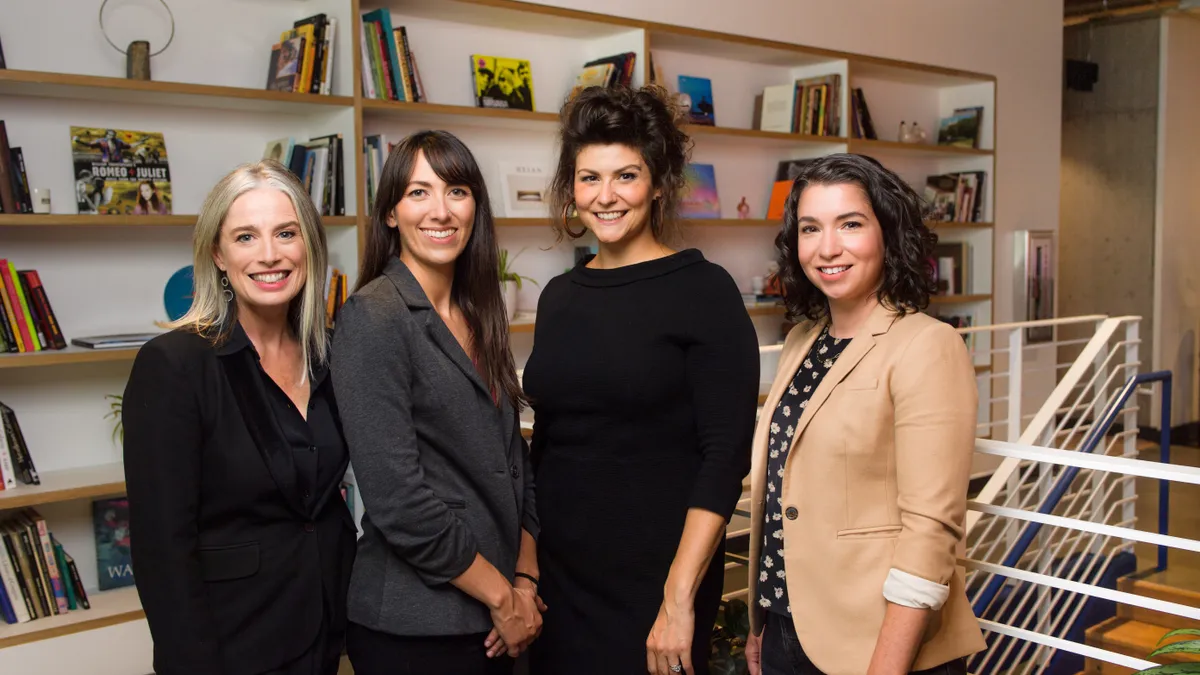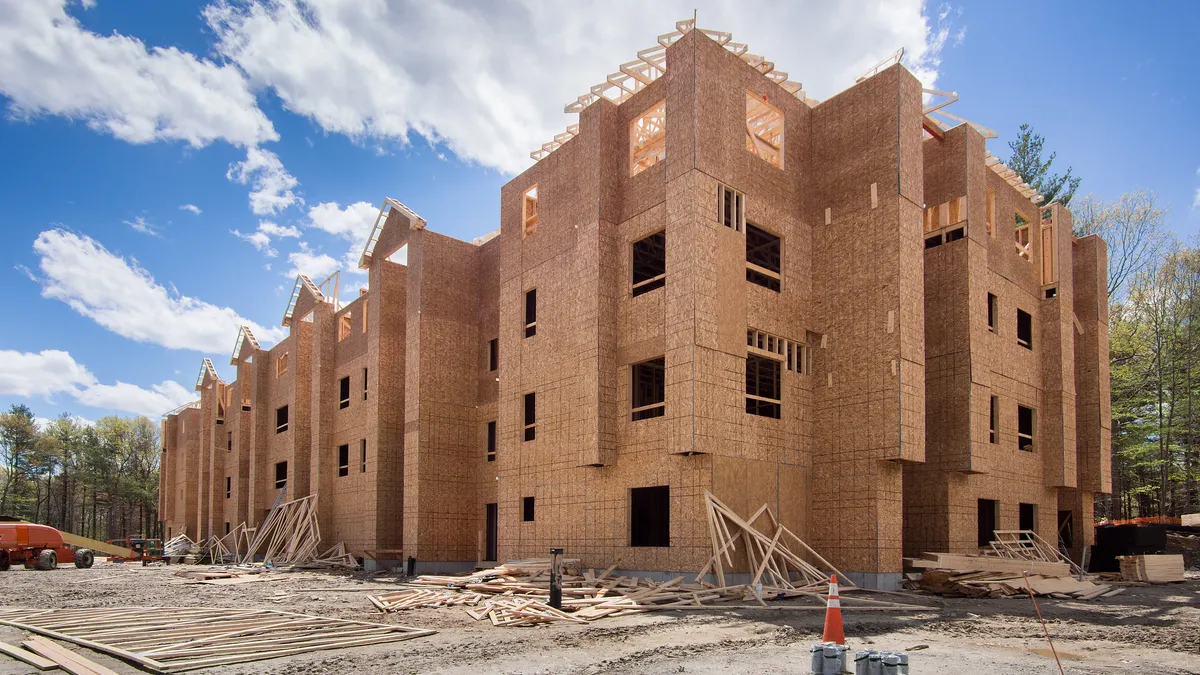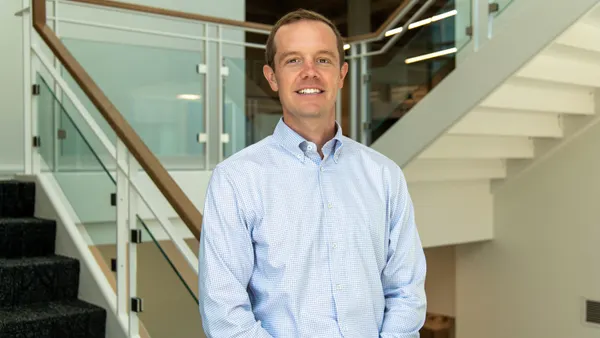Dive Brief:
- Four former senior staff members at Katerra, the offsite construction firm that declared bankruptcy earlier this year, have landed new roles with a London-based construction technology company.
- The former Katerra directors joined U.S. operations last month at Modulous, which is opening its first U.S. office in the Seattle region. The contech company offers a digitized platform to modernize the design and construction process of modular housing.
- At its peak in early 2019, Katerra reached a valuation of more than $4 billion. The company shut down a few years later due to executive transitions, delayed projects, construction costs, pandemic-related impacts and an inability to convince developers and contractors to move away from their traditional subcontractors.
Dive Insight:
The hiring of these four former staff members happened soon after Katerra announced its bankruptcy this summer, said Chris Bone, co-founder and CEO of Modulous. When Katerra shut down, the Modulous team immediately moved to bring in these Katerra alumni, he said. The new hires (pictured left to right above) and their titles are:
- Janet Stephenson, regional managing director
- Kassandra Mast, operations director
- Eva Talbot, product director
- Jennifer Caldwell, design director
Modulous differs from Katerra's business model specifically in its "asset-light" approach, said Bone. In other words, whereas Katerra bought the supply chain for its operations, Modulous instead uses existing supply chains and focuses on building a technology platform that enables modular construction. The company also specializes in mid-rise multifamily, with their sweet spot in six- to 12-story developments, said Stephenson.
"We're looking to achieve the same as Katerra was in terms of mass delivery of quality homes, we just came at it from a completely different angle," said Bone. "Katerra obviously had amazing people through its ranks. It was an amazing business. And we just started looking at things slightly differently."
The key for Modulous is to digitize its proprietary kit of parts, which is a series of sub-assemblies procured from the established supply chain that can be brought together to create modular homes in facilities near the jobsite. The kit of parts is manufactured within the global supply chain, removing the need for fixed factories.
The system enables both developers to carry out feasibilities on their sites — so that they can understand return on investments, cost to build and the schedule to build very quickly — and architects to design the buildings on a detailed level, said Bone. Modulous then licenses the kit of parts to the general contractor who can assemble the modular buildings, without having to invest in factories or design their own components.
"It's a very different business model to Katerra," said Bone. "However, at the end of the day, we're all seeking that way to solve the housing crisis in so many different countries. And this was our approach to that same outcome."
Future outlook
The company is working with its delivery partners on five pilot multifamily housing developments in the coming 12 months in the U.K. and is looking to gain similar traction in the U.S. starting in the first and second quarter in 2022, said Bone.
Industrialization and urbanization, combined with an increasing demand for green building, are driving global modular construction market growth, which is expected to reach $141.8 billion by 2027. That’s approximately a 48% increase from $95.49 billion in 2020, according to a Research CMFE report.
Favorable government initiatives and investments in infrastructure development by several major countries are also further expected to propel the demand for the modular construction market.
"One of the things that I find really fascinating about the modular system in the U.K. is that the U.K. has national standards for operations and procedures for modular delivery, or modern methods of construction," said Stephenson. "And that's not something that we have in the U.S. across the nation. And I do think that there's an extraordinary opportunity here to develop stronger standards."










